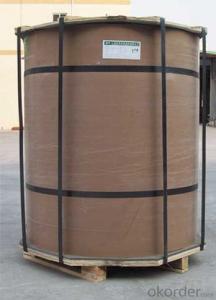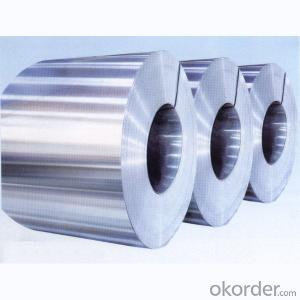AA1050 Aluminum Coils used on Construction
- Loading Port:
- Shanghai
- Payment Terms:
- TT OR LC
- Min Order Qty:
- 5 m.t.
- Supply Capability:
- 10000 m.t./month
OKorder Service Pledge
OKorder Financial Service
You Might Also Like
1.Structure of AA1050 Aluminum Coils used on Construction Description
AA1050 Aluminum Coils used on Construction has great ductility, heat conductivity, anti-corrosion and moisture resistance properties.
AA1050 Aluminum Coils used on Construction is widely used for electronics, instruments, lighting decoration, packing industry, house decoration, curtain wall, honeycomb-core panel, sandwich panel, aluminum composite panel and aluminum composite pipes.
2.Main Features of AA1050 Aluminum Coils used on Construction
• Superior quality of raw material
• Reasonable and stable chemical composition
• Accurate tolerance
• Goode mechanical property
3.AA1050 Aluminum Coils used on Construction Images
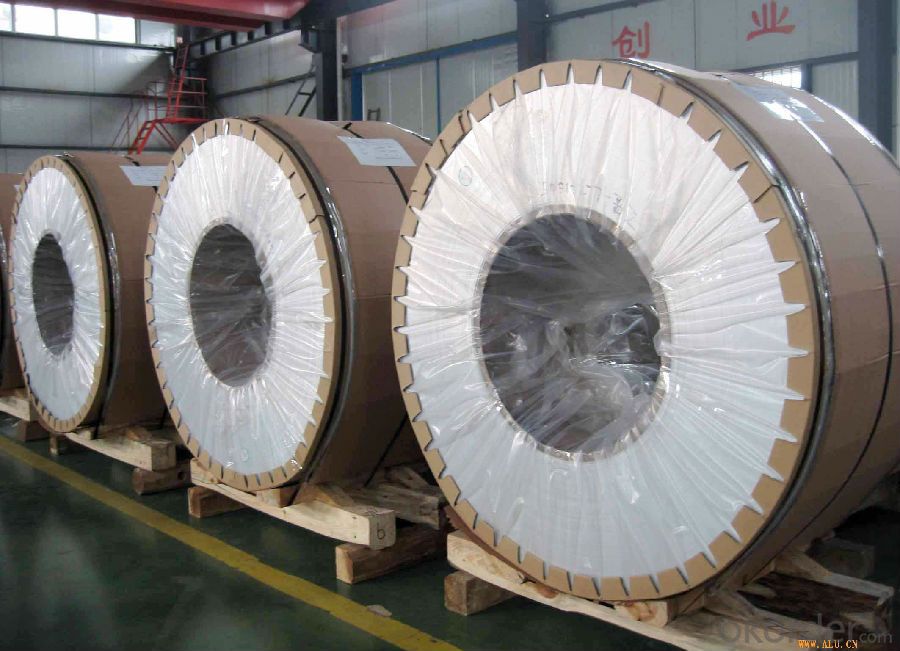
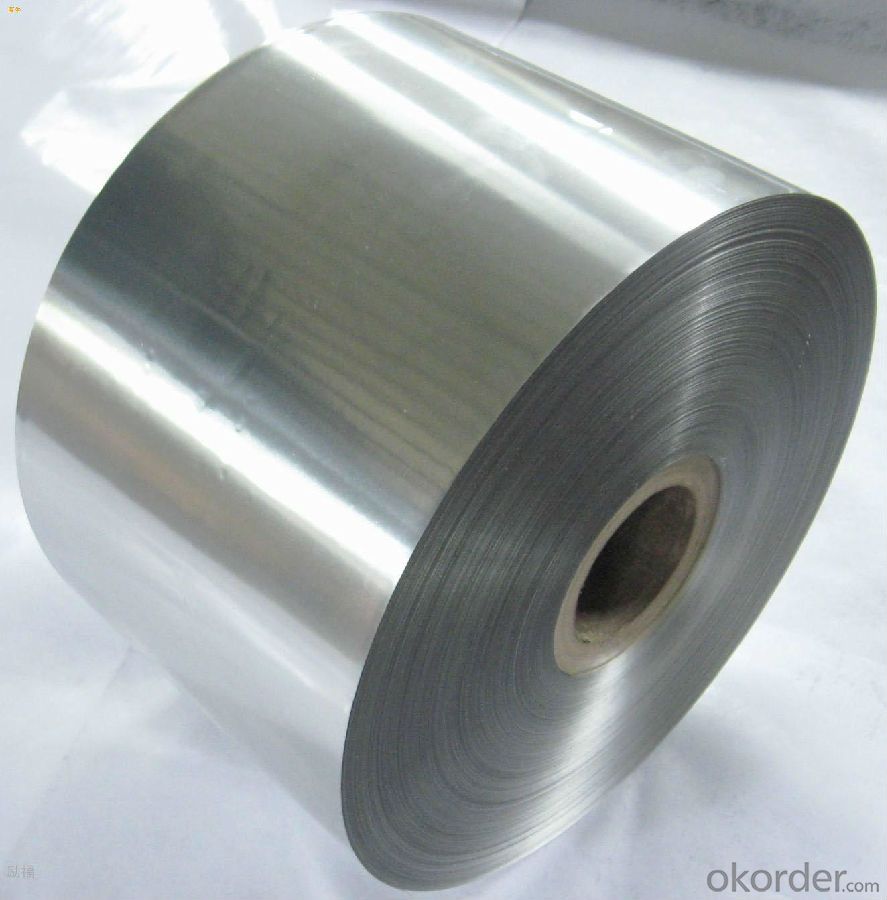
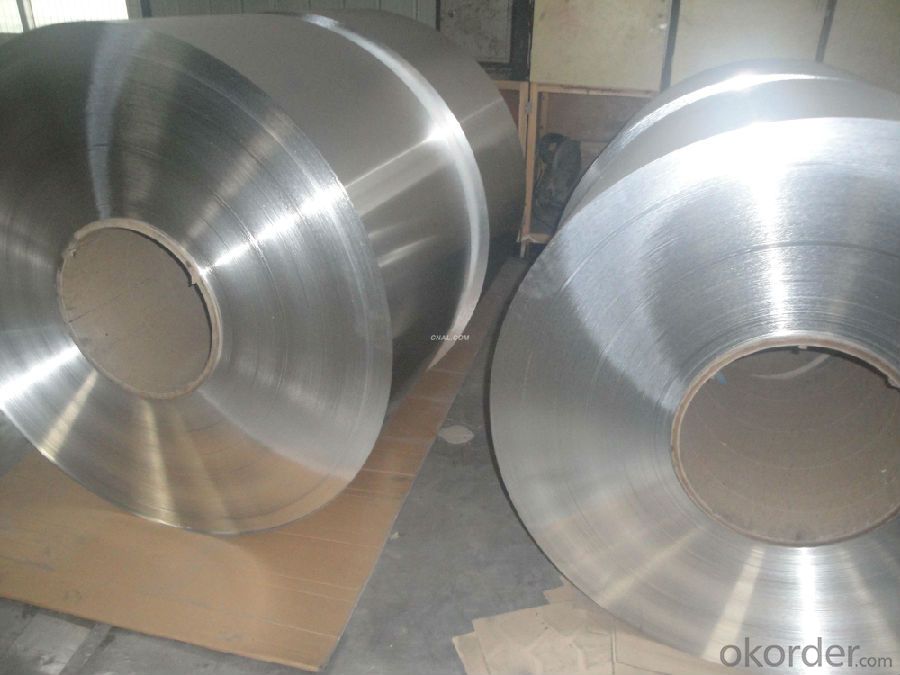
4.AA1050 Aluminum Coils used on Construction Specification
Alloy | A1050 |
Temper | H14, H16, H18, H22, H24, H26, H32, O/F |
Thickness | 0.2mm -- 100mm |
Width | 30mm -- 1700mm |
Standard | GB/T 3880-2006,EN,ASTM,JIS |
5. FAQ of AA1050 Aluminum Coils used on Construction
A.How to guarantee the quality?
Customers are welcome to our mill to visit and check the products. Besides, we can arrange a third party to test AA1050 Aluminum Coils used on Construction.
B.When will you deliver the products?
AA1050 Aluminum Coils used on Construction will be delivered within 35 days after receiving advanced payment or original L/C.
- Q:How are aluminum coils used in the manufacturing of household appliances?
- Aluminum coils are used in the manufacturing of household appliances as they provide excellent conductivity, durability, and corrosion resistance. These coils are commonly used in appliances such as refrigerators, air conditioners, and heating systems. They help in transferring heat efficiently, improving energy efficiency, and ensuring the longevity of the appliance. Additionally, aluminum coils are lightweight, making them easier to handle during the manufacturing process.
- Q:Is aluminium a safe metal to put in ones mouth without any side effects?
- Heck yeah dude!! I love the taste of alluminum!
- Q:What is the maximum operating temperature for aluminum coils?
- The maximum operating temperature for aluminum coils typically depends on the specific grade of aluminum being used. However, in general, aluminum has a high melting point of around 660 degrees Celsius (1220 degrees Fahrenheit). This means that it can withstand relatively high temperatures without melting or deforming. For most common grades of aluminum, the maximum operating temperature is usually between 200 and 300 degrees Celsius (392 and 572 degrees Fahrenheit). However, it is important to note that this temperature range may vary depending on factors such as the thickness of the coils and the specific application they are being used for. In applications where higher temperatures are expected, it is advisable to use aluminum alloys that have been specifically designed to withstand higher temperatures. These alloys, such as aluminum alloy 6061, can have maximum operating temperatures of up to 400 degrees Celsius (752 degrees Fahrenheit) or even higher. It is always recommended to consult the manufacturer's specifications and guidelines for the specific aluminum coils being used to ensure that they are operated within their safe temperature limits.
- Q:Can aluminum coils be used in the production of solar panels?
- Yes, aluminum coils can be used in the production of solar panels. Aluminum is a lightweight and durable material that offers various benefits for solar panel manufacturing. It is highly conductive and has excellent thermal properties, allowing for efficient heat dissipation. Additionally, aluminum is resistant to corrosion, which is crucial for solar panels as they are exposed to various weather conditions. Moreover, aluminum is a cost-effective material, making it a popular choice in the solar industry. Overall, using aluminum coils in the production of solar panels helps to enhance their performance, longevity, and cost-effectiveness.
- Q:Can aluminum coils be customized in terms of thickness?
- Aluminum coils can indeed undergo customization in terms of thickness. The specific requirements of a particular application can determine the adjustment of aluminum coils' thickness. This customization is attained through the process of aluminum coil slitting, which involves cutting the original coil into narrower coils of the desired thickness. This method enables the flexibility to meet a range of needs and specifications across diverse industries.
- Q:Aluminum roll, which companies are used?
- Too many things that you can see every day, with all the things that are made of aluminum, and the companies that make these aluminum products are useful, so it's unclear!
- Q:How can aluminium ingots be processed into aluminium coils (aluminium sheets)?
- This depends on what kind of ingot, and if it is small, it needs to be melted into a furnace, cast into a large plate, and then rolled on a mill
- Q:Are there any specific regulations for the disposal of aluminum coil waste?
- Yes, there are specific regulations for the disposal of aluminum coil waste. The disposal of aluminum coil waste is subject to various environmental regulations to ensure proper handling and prevent any potential harm to the environment and human health. One of the key regulations is the Resource Conservation and Recovery Act (RCRA) in the United States. Under this act, aluminum coil waste is considered a hazardous waste if it exhibits certain characteristics such as ignitability, corrosivity, reactivity, or toxicity. If the waste meets these criteria, it must be managed as hazardous waste and disposed of in accordance with RCRA regulations. This may involve treatment, storage, and disposal at an approved hazardous waste facility. Additionally, the Environmental Protection Agency (EPA) has established guidelines for the disposal of non-hazardous aluminum coil waste. These guidelines typically require proper storage, labeling, and transportation of the waste to an authorized disposal facility. The disposal facility should be equipped to handle and process the waste in an environmentally responsible manner. In many countries, including the United States, local, state, and federal regulations may also apply to the disposal of aluminum coil waste. These regulations may vary depending on the specific location and the nature of the waste. It is crucial for businesses and individuals involved in the disposal of aluminum coil waste to familiarize themselves with the applicable regulations to ensure compliance and avoid potential penalties. Overall, it is important to follow the specific regulations for the disposal of aluminum coil waste to protect the environment, prevent pollution, and ensure the safety of individuals involved in waste management.
- Q:What do the two items (COIL:873347 HEAT: number) on the label of the raw material of aluminum coil stand for?
- COIL means aluminum coil and HEAT means heating, so together they mean hot rolled coil.
- Q:Can aluminum coils be used in corrosive gas environments?
- Yes, aluminum coils can be used in corrosive gas environments. Aluminum is known for its excellent corrosion resistance, especially in atmospheric conditions. It forms a protective oxide layer on the surface that protects the metal from further corrosion. However, it is important to note that aluminum can be susceptible to certain corrosive gases, such as chloride and sulfur compounds. In such cases, additional protective measures, such as surface treatment or coating, may be necessary to ensure the longevity and performance of the aluminum coils in corrosive gas environments.
1. Manufacturer Overview |
|
|---|---|
| Location | |
| Year Established | |
| Annual Output Value | |
| Main Markets | |
| Company Certifications | |
2. Manufacturer Certificates |
|
|---|---|
| a) Certification Name | |
| Range | |
| Reference | |
| Validity Period | |
3. Manufacturer Capability |
|
|---|---|
| a)Trade Capacity | |
| Nearest Port | |
| Export Percentage | |
| No.of Employees in Trade Department | |
| Language Spoken: | |
| b)Factory Information | |
| Factory Size: | |
| No. of Production Lines | |
| Contract Manufacturing | |
| Product Price Range | |
Send your message to us
AA1050 Aluminum Coils used on Construction
- Loading Port:
- Shanghai
- Payment Terms:
- TT OR LC
- Min Order Qty:
- 5 m.t.
- Supply Capability:
- 10000 m.t./month
OKorder Service Pledge
OKorder Financial Service
Similar products
New products
Hot products
Related keywords
